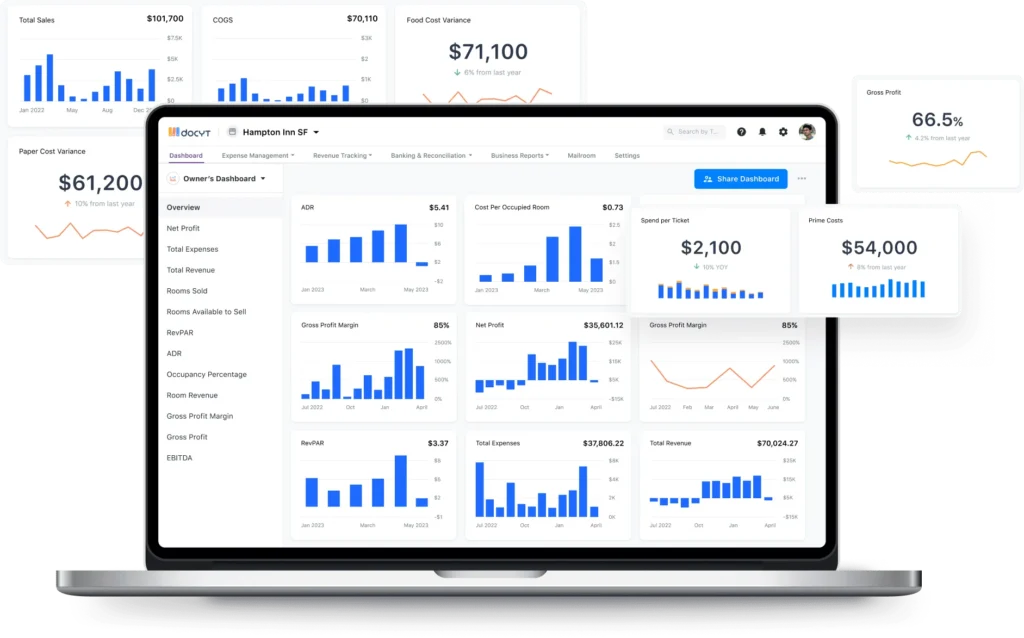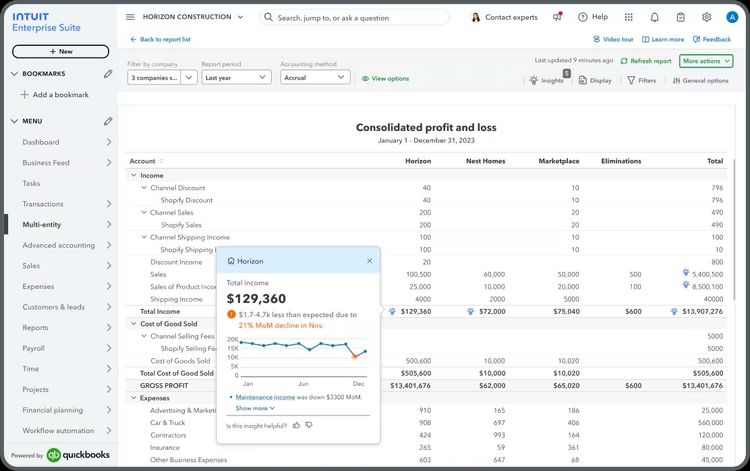Managing multiple businesses is rewarding—but keeping track of finances across different entities can quickly get overwhelming. The right accounting software for multiple businesses can save time, reduce errors, and give you clear insights into each company’s financial health.
In 2025, advanced tools make it easier than ever to manage everything from a single dashboard. Let’s explore the top accounting solutions designed to help you take control.
🔹 Why You Need Specialized Accounting Software for Multiple Businesses
When running more than one business, standard accounting tools fall short. Multi-business owners need features like:
- Multi-entity support (run multiple businesses under one account)
- Separate chart of accounts per business
- Consolidated financial reporting
- Role-based access control for teams
- Easy tax and compliance management across entities
Let’s now look at the best accounting software for multiple businesses in 2025.
Top 6 Accounting Software for Multiple Businesses: Head-to-Head Comparison
| Software | Best For | Key Multi-Business Feature | Pricing (per Entity) | Pros | Cons |
|---|---|---|---|---|---|
| QuickBooks Online | Small ventures (2-5 entities) | Unlimited companies under one login | $30-200/month | Simple setup, vast app ecosystem | Needs add-ons for full consolidation |
| Xero | International freelancers | Multi-org accounts with currency support | $13-70/month | Unlimited users, quick invoicing | Basic reports require upgrades |
| Sage Intacct | Mid-sized franchises | Dimensional charts for entity analysis | $400+/month | Strong automation for compliance | Learning curve for beginners |
| NetSuite | Global subsidiaries | OneWorld for multi-book ledgers | Custom ($999+/month) | Real-time worldwide dashboards | Too pricey for startups |
| Tipalti | AP-focused e-commerce | Supplier setup across entities | Variable add-on | 80% faster closes, AI fraud tools | Works best with ERPs, not alone |
| Microsoft Dynamics 365 | Enterprises with integrations | Intercompany eliminations via AMCS | $180+/user/month | Power BI for custom metrics | Needs IT help for initial setup |
QuickBooks shines for starters. Its import wizard halves migration time from spreadsheets. Users switch entities in seconds, tracking separate inventories without overlap. But for over five businesses, add-ons like Joiin help with consolidations.
Xero fits global users well. It handles unlimited entities under one sub. Multi-currency converts on the fly, reducing errors by 30% in tests. Pair it with Zapier for CRM links.
Sage Intacct targets growing firms. Its multi-dimensional setup lets you tag transactions by entity or location. This speeds reporting—users close books in days, not weeks.
NetSuite leads for scale. OneWorld manages subsidiaries across borders with localized taxes. Real-time dashboards show consolidated cash flow, aiding decisions during expansions.
Tipalti excels in payments. It automates supplier onboarding for all entities, cutting AP time by 70%. Integrate with Sage for full coverage.
Microsoft Dynamics 365 suits complex ops. AMCS automates eliminations, and Power BI builds KPIs per entity. It’s ideal if you already use Microsoft tools.

🔹 Top Accounting Software for Managing Multiple Businesses
1. QuickBooks Online Advanced
- Why it’s great: Offers multi-company support, customizable reports, and automated workflows.
- Best for: Small to mid-sized business owners managing 2–5 businesses.
- Pros: Cloud-based, great support, third-party integrations
- Cons: Limited multi-entity reporting unless using add-ons
2. Xero
- Why it’s great: Simple UI, allows multiple businesses in one login, robust reporting.
- Best for: Startups and freelancers with more than one business
- Pros: Affordable, scalable, user-friendly
- Cons: No built-in multi-entity consolidation—you’ll need third-party tools
3. Zoho Books
- Why it’s great: Budget-friendly with multi-organization support under Zoho One.
- Best for: Budget-conscious business owners or startups
- Pros: Integrated suite with CRM, Inventory, and HR tools
- Cons: Slight learning curve for non-Zoho users
4. NetSuite by Oracle
- Why it’s great: Enterprise-grade ERP system with powerful multi-entity support
- Best for: Large businesses with global subsidiaries or complex operations
- Pros: Full automation, consolidated reporting, strong audit trails
- Cons: Expensive, requires expert implementation
5. FreshBooks (Plus Multi-Business Add-On)
- Why it’s great: Very intuitive and easy for service-based businesses
- Best for: Consultants, freelancers, and agencies
- Pros: Great customer support, simple UI
- Cons: Limited features for very large or complex businesses

🔹 Key Features to Look for in 2025
- AI-powered insights and automation
- Cloud and mobile access
- Multi-currency & multi-tax handling
- Real-time reporting dashboards
- Data security & compliance (especially for global businesses)
🔹 Conclusion
Managing multiple businesses doesn’t have to mean juggling multiple spreadsheets or software accounts. With the right accounting solution, you can centralize control, simplify tax management, and get real-time insights for each company—all from one place.
Choose software based on the size of your businesses, your budget, and how much automation and reporting you need. 2025 offers some of the most advanced tools yet—take advantage and grow smarter.
🔹 FAQs
Q1: Can I use QuickBooks for multiple businesses?
Yes, but you’ll need separate company files for each business unless you use QuickBooks Online Advanced with certain add-ons.
Q2: Is there any free software for managing multiple businesses?
Zoho Books offers free plans for small businesses and allows multi-organization management if you use Zoho One.
Q3: What’s the best accounting software for large businesses with multiple entities?
NetSuite is one of the most powerful tools for enterprise-level multi-entity accounting.
Q4: Can I consolidate reports across businesses?
Yes, but only certain software like NetSuite and QuickBooks Advanced offer built-in consolidated reporting.
Q5: How many businesses can I manage under one software?
It depends on the provider—some allow unlimited businesses, while others cap the number or charge extra per entity.
🔹 Key Takeaways
✅ Use accounting software that supports multi-entity management
✅ Look for automation, reporting, and tax tools specific to multiple businesses
✅ Choose based on your business size, budget, and complexity
✅ Tools like QuickBooks, Xero, Zoho, NetSuite, and FreshBooks are top picks in 2025
✅ Stay future-ready with AI-powered dashboards and cloud access



